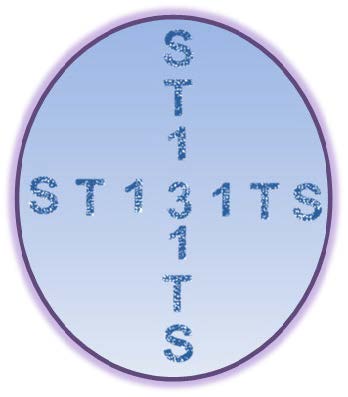Escherichia coli ST131: a model for high-risk transmission dynamics of antimicrobial resistance
Environment
Surveillance
Transmission
- Johan Pitout, University of Calgary, Canada (Coordinator)
- Neil Woodford, Public Health England, United Kingdom (Partner)
- Fernando Baquero, Ramón y Cajal Institute for Health Research (IRYCIS), Spain (Partner)
- Marie-Hélène Nicolas-Chanoine, Beaujon Hospital/ Paris VII University, France (Partner)
- Laurent Poirel, University of Fribourg, Switzerland (Partner)
- Alvaro Pascual, Fundación Púbica para la Gestión de la Investigación de Salud en Sevilla, Spain (Partner)
- Jean-Yves Madec, ANSES, French Agency for Food, Environmental and Occupational Health & Safety, France (Observer)
- Tarah Lynch, University of Calgary, Canada (Observer)
This project connected many transnational academic resources to investigate the transmission success of Escherichia coli ST131 clone. E. coli is the most common cause of urinary tract and bloodstream infections worldwide. Resistance to widely used antibiotics for the treating E. coli infections is common and widespread. A single E. coli clone, ST131, is mainly responsible for this global AMR pandemic causing millions of antibiotic-resistant infections annually. It remains unclear which features of ST131 had resulted in the biggest antimicrobial resistance succes of the 2000s. We created a combined European-Canadian consortium that investigated the transmission dynamics of ST131. This study explored transmission of resistance and virulence genes and how they contributed to the success of ST131. The project also investigated transmission of ST131 among humans, animals and different environments. This project showed that ST131 is a public health concern in Canada and Europe and provided information to better understand the spread and managing infections due to multidrug resistant E. coli. Only by understanding how antibiotic resistance evolves and spreads in bacterial populations, can we begin to overcome such resistance. A famous quote from Stephen Hawking; “Intelligence is the ability to adapt to change”. ST131 adapted rapidly to environmental changes; we need to know why and how. This project will serve as a model to predict what can possibly happen in the future with the continuing emergence of multidrug resistant clones among bacteria.
- Diagn Microbiol Infect Dis, 2018. The population structure of clinical extra-intestinal Escherichia coli in a teaching hospital from Nigeria
- Antimicrob Agents Chemother. 2021. Antioxidant Molecules as a Source of Mitigation of Antibiotic Resistance Gene Dissemination
- Antimicrob Resist Infect Control, 2018. Intestinal colonization due to Escherichia coli ST131: risk factors and prevalence
- J Antimicrob Chemother. 2021. Effect of RecA inactivation on quinolone susceptibility and the evolution of resistance in clinical isolates of Escherichia coli
- Antimicrob Agents Chemother. 2021. Antioxidant Molecules as a Source of Mitigation of Antibiotic Resistance Gene Dissemination
- Antimicrob Agents Chemother, 2020. Simulating the Influence of Conjugative-Plasmid Kinetic Values on the Multilevel Dynamics of Antimicrobial Resistance in a Membrane Computing Model
- Nat Microbiol, 2019. Prediction of the intestinal resistome by a three-dimensional structure-based method
- J Antimicrob Chemother. 2021. Detection in livestock of the human pandemic Escherichia coli ST131 fimH30(R) clone carrying blaCTX-M-27
- Front Microbiol, 2021. The Origin of Niches and Species in the Bacterial World
- Nat Microbiol, 2019. Defining and combating antibiotic resistance from One Health and Global Health perspectives
- Front Microbiol, 2019. Gene Transmission in the One Health Microbiosphere and the Channels of Antimicrobial Resistance
- Methods Mol Biol, 2020. Statistical Analysis of Accessory Genome
- European Journal of Clinical Microbiology & Infectious Diseases, 2021. Population-based epidemiology of Escherichia coli ST1193 causing blood stream infections in a centralized Canadian region
- Philosophical Transactions of the Royal Society B Biological Sciences, 2021. Translational demand is not a major source of plasmid-associated fitness costs
- Antimicrobial Agents and Chemotherapy, 2022. Escherichia coli ST1193: Following in the Footsteps of E. coli ST131
- bioRxiv, 2022. Molecular characteristics of phages located in Carbapenemase-Producing Escherichia coli clinical isolates: New Phage-Like Plasmids
- European Journal of Clinical Microbiology & Infectious Diseases, 2024. Genomic epidemiology and molecular characteristics of blaNDM-1-positive carbapenem-resistant Pseudomonas aeruginosa belonging to international high-risk clone ST773 in the Gauteng region, South Africa
- Microbiology Spectrum, 2023. Molecular Epidemiology of Global Carbapenemase-Producing Citrobacter spp. (2015–2017)
- Infectious Diseases and Therapy, 2023. The Significance of Epidemic Plasmids in the Success of Multidrug-Resistant Drug Pandemic Extraintestinal Pathogenic Escherichia coli
- Eurosurveillance, 2019. Emergence of diversity in carbapenemase-producing Escherichia coli ST131, England, January 2014 to June 2016
- Infection, Genetics and Evolution, 2020. The evolutionary puzzle of Escherichia coli ST131
- mBio, 2020. Simulating multi-level dynamics of antimicrobial resistance in a membrane computing model
- Clinical Microbiol and Infection, 2020. Molecular epidemiology of Escherichia coli causing bloodstream infections in a centralized Canadian region: a population-based surveillance study
- Antimicrob Agents Chemother, 2020. Emerging Antimicrobial Resistant High-Risk clones among Klebsiella pneumoniae: ST307 and ST147
- Front Microbiol, 2020. Pathogenic Escherichia coli in Dogs Reveals the Predominance of ST372 and the Human-Associated ST73 Extra-Intestinal Lineages
- J Antimicrob Chemother, 2019. Emergence of the C1-M27 cluster in ST131 Escherichia coli from companion animals in France
- Appl Environ Microbiol, 2020. A Comprehensive Account of Escherichia coli Sequence Type 131 in Wastewater Reveals an Abundance of Fluoroquinolone-Resistant Clade A Strains
- Journal of Antimicrobial Chemotherapy, 2022. Bacterial genotypic and patient risk factors for adverse outcomes in Escherichia coli bloodstream infections: a prospective molecular-epidemiological study
- Front Microbiol, 2019. Association Between Kinetics of Early Biofilm Formation and Clonal Lineage in Escherichia coli.
- J Antimicrob Chemother. 2021. Spatial distribution of Escherichia coli ST131 C subclades in a centralized Canadian urban region.
- Emerg Infect Dis. 2020. Trends in Population Dynamics of Escherichia coli Sequence Type 131, Calgary, Alberta, Canada, 2006-2016
- Infect Genet Evol, 2020. The evolutionary puzzle of Escherichia coli ST131
- Clin Microbiol Rev, 2019. Global Extraintestinal Pathogenic Escherichia coli (ExPEC) Lineages

